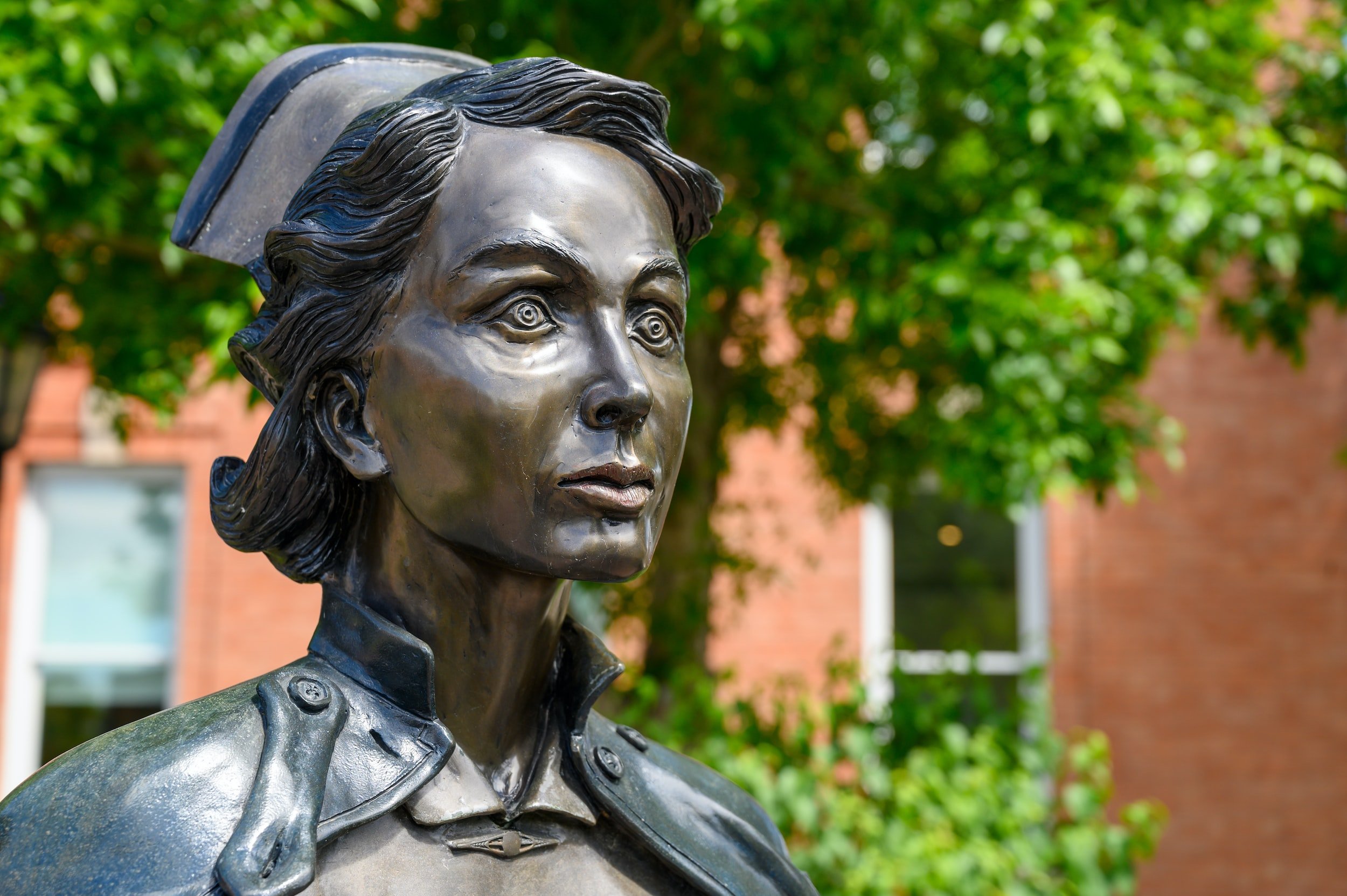
The Health of the Province
Five nurses, spread across the Midwest, make sure Jesuits get the health care advice and advocacy they need
By Emily Rust
When you dedicate your life to serving others, you might have a tendency to forget about yourself at times. This happens in the Jesuit community, where priests and brothers become so focused on their work that their own health care needs fade from their thoughts.
“With us around, we can sort of nudge them and remind them that they have to take care of themselves and stay well so they can continue to do the ministry they want to do,” says Jane Glynn-Nass, RN, BSN, the Midwest Jesuits provincial assistant for health care.
Jane Glynn-Nass, RN, BSN
She cares for Jesuits in Milwaukee, Oshkosh, Twin Cities and South Dakota,
and leads a team of four other health care coordinators across the province: Martha Todd, PhD, APRN-NP, in Omaha; Mary Murray, PA-C, RN, BSN, in Chicago and
MANY JESUITS THAT I HAVE BEEN WITH HAVE EXPRESSED THEIR GRATITUDE FOR HAVING US AROUND WHEN THEY’RE GOING TO THE DOCTOR AND TRYING TO NEGOTIATE THESE HEALTH CARE SYSTEMS.
South Bend, Indiana; Barb Mechley, RN, BSN, in Indianapolis, Cincinnati and Lexington, Kentucky; and Pat Havern, RN, BSN, in Detroit and Ohio (Toledo, Cleveland and Akron).
The coordinators provide holistic care, which could include performing a health care screening, administering a vaccine, offering advice or taking a Jesuit to a doctor’s appointment or surgery.
“I’m providing individual care on a different level, not as a provider, but as an advocate, an educator,” says Todd of Omaha. “I accompany them on their journey. It’s good to have somebody with you to help.”
Glynn-Nass says she’s seen many changes in her 21 years as a Jesuit health care worker. Health care systems have evolved dramatically, and what once would have been handled in conversations with a few family doctors now requires navigating a list of hundreds of specialists.
Barb Mechley, RN, BSN
“Many Jesuits that I have been with have expressed their gratitude for having us around when they’re going to the doctor and trying to negotiate these health care systems,” Glynn-Nass says.
Anyone who has been through a hospital procedure, or even to a routine doctor’s appointment, knows how helpful it can be to have a second set of ears available when the doctor comes in for a consultation. Hearing all the doctor has to say is one thing. Retaining it all is another.
Pat Havern, RN, BSN
ONE OF THE FIRST PEOPLE I WAS HELPING WITH WAS GOING TO AN ANGIOGRAM. IT WAS SO SERIOUS THAT HE HAD TO HAVE OPEN HEART SURGERY TWO DAYS LATER, THEN BE IN THE ICU. HE COULDN’T DRIVE FOR EIGHT WEEKS.
“Some days my job will be helping priests get to and from their doctors’ appointments, helping them absorb what they just heard and what they need to do in the future,” says Murray of Chicago and South Bend, Indiana. Though she’s been a coordinator only since November 2021, she’s already seen the impact the role has on the Jesuits.
“One of the first people I was helping with was going to an angiogram,” Murray says. “It was so serious that he had to have open heart surgery two days later, then be in the ICU. He couldn’t drive for eight weeks.”
Murray accompanied him to his cardiology appointments, and continued to adjust her schedule to care for him. But she never had to worry about being on her own, at least not in spirit. As a true team, the five coordinators often collaborate with one another.
THEY ARE CAREGIVERS IN GENERAL, PRIESTS CARING FOR OTHERS, AND THERE NEEDS TO BE SOMEONE WHO CARES FOR THEM, TOO.
“Two heads are always better than one and the five of us delving into a problem is always much nicer than one person going at it alone,” Glynn-Nass says.
The group meets annually to address whatever issues they have, and the five coordinators keep in touch over the course of the year with other Jesuit caregivers outside the Midwest.
“We’re so lucky to have been able to find really high-quality nurses,” Glynn-Nass says. “We have lots of experience and lots of knowledge, so we can take care of almost anything.”
The Jesuits make sure to express their gratitude. “They’re all so different and yet so kind and generous and appreciative at the same time,” Glynn-Nass says.
Martha Todd, PhD, APRN-NP
Mary Murray, PA-C, RN, BSN
Todd says the role of a health care coordinator also involves some degree of nurturing. “They are caregivers in general, priests caring for others, and there needs to be someone who cares for them, too,” she says.
The role of a health care coordinator isn’t for every nurse, but Todd, and surely others, if not all, in the Midwest Province, have felt a special call to serve the Jesuits. “Coming out of the Spiritual Exercises, I thought, What can I do for the second part of my life?” Todd says. “How can I do my part in serving God?”
She found her answer, and because she did, the Jesuits receive as much reward as she does. “I love getting to know each of them on a personal level,” she says. “It’s a privilege to share health care with someone.”







